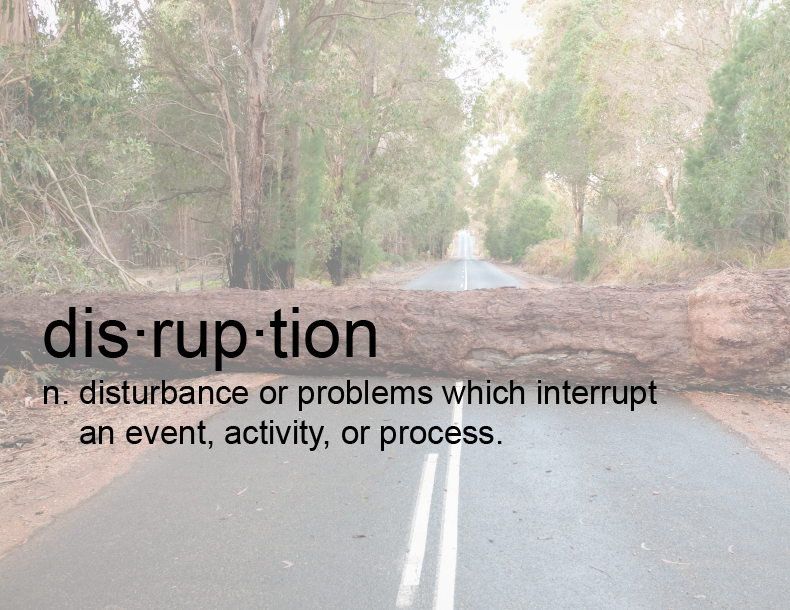
It is predicted that half of the S&P 500 will no longer be a part of that list within 10 years.1
Disruption is all around us, and it is continuous. There will always be new markets created, financial market crises, election years, trade wars, virus breakouts, floods and other natural disasters, and more. Last year alone, the amount spent investing in digital technology reached almost $2 trillion. The creation and pace of new business models such as Uber, Airbnb, Tesla, and others will continue to disrupt the way we innovate, organize, develop and train, and most importantly, lead.
When we are the business that is getting disrupted, it’s easy to fall ball back on what we know. Neuroscience tells us that when we are in high-stress situations, it’s easy to resort to familiar patterns and experiences that have worked for us before. Unfortunately, our tendency is to back away from learning during stress, but we do our best thinking – and learning – when we are in uncharted territory! When we are not the experts, we become the “interns”. With this career disruption we begin to ask thoughtful questions, take in new data, and pull diverse thinkers and experience into the discussion.
One of my recent participants in the Signature Program told me, “I’ve been to many leadership development programs where I am attending in order to learn something. Signature actually helped me unlearn things I need to change.” As leaders, we need to be open to learning, even if it means unlearning something first. As Liz Wiseman suggests in her book, Multipliers, “It’s no longer what we know, but how fast we learn,” and learning is a behavior that must be practiced. Did you know that the average adult asks one to two questions per day, while the average preschooler asks about 100?2
Leaders need to see DISRUPTION as a positive – a way to always keep us on our toes, to keep us looking at new ideas, and to keep us stretching our thinking, so we can reach our full potential. In fact, Tammy Erickson, author and Adjunct Professor of Organizational Behavior at London Business School, believes that leaders will have to create their own disruption to be successful in the future. To create environments where people want to work and where innovation happens, leaders must do the following:
- Disrupt – continually infuse fresh air in the organization
- Engage – communicate a compelling purpose that leads to a promise and ensure the organization delivers on that promise
- Connect – make it easy to share insights, observations, and ideas
- Intrigue – leaders do not need the answers; they need the questions
Change your mindset to one of curiosity and learning. Embrace career disruption as the next step in your leadership journey. Stop climbing career ladders, and instead, climb learning curves.
1 Innosight study by Anthony, S. D., Viguerie, S. P., Schwartz, E. I., & Van Landeghem, J., 2018 (2021 Corporate Longevity Forecast)
2 University of Michigan study, referenced by Liz Wiseman in a 2015 TEDx Talk (Living and working with child-like wonder)
